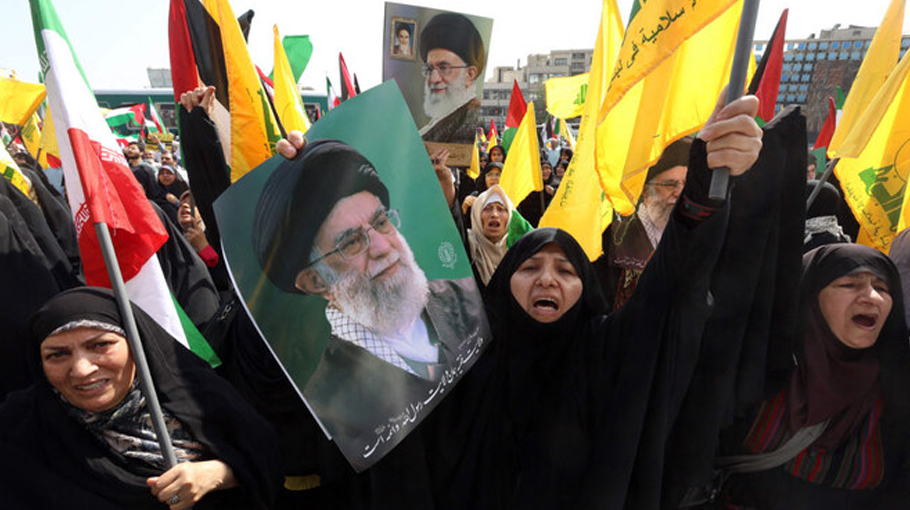Nasrallah’s death is a wake-up call for the Arab world

In a stunning turn of events, the assassination of Hezbollah leader Hassan Nasrallah in an Israeli airstrike should serve as a crucial moment of reflection for the Arab world. This moment is not only about Hezbollah or Nasrallah himself, but also about the deeper realization that Iran — the key backer of Hezbollah — is an unreliable ally whose interests starkly diverge from those of the broader Arab and Muslim world.
For decades, Iran has positioned itself as the self-styled defender of Palestinian rights, and the vanguard of resistance against Israel. Through proxy groups such as Hezbollah, Tehran has wielded influence in Lebanon, Iraq, Syria, and Yemen, claiming to be at the forefront of the fight against Western and Israeli aggression. But behind the facade of resistance lies a pattern of betrayal, where Arab and Muslim interests have consistently been sacrificed on the altar of Iran’s own geopolitical ambitions.
Time and again, Iran and its allies, including Hezbollah, have made fiery declarations of their intent to “wipe Israel off the map.” Yet, in every significant confrontation, these threats have amounted to little more than rhetorical bluster. Iran’s military and proxy forces have been largely defensive, often failing to follow through on their vows of decisive action against Israel. Hezbollah, while maintaining its strength as a militia, has not posed a genuine existential threat to Israel. The organization, under Nasrallah’s leadership, has relied on sporadic skirmishes and isolated rocket attacks — all of which Israel has swiftly and forcefully repelled.
This pattern of inaction extends beyond Hezbollah. In the broader Arab world, there is a growing awareness that Iran’s promises of “resistance” have only deepened regional instability, resulting in endless cycles of conflict and devastation, particularly in Lebanon, Syria and Yemen. Nasrallah’s incendiary speeches painted a picture of eventual triumph over Israel, but on the ground Hezbollah’s actions yielded little progress in the Palestinian cause, only further isolating Lebanon in its perpetual state of conflict.
Nasrallah’s assassination marks the latest
episode in a series of Iranian
failures to protect or advance the interests
of its allies.
Nasrallah’s assassination marks the latest episode in a series of Iranian failures to protect or advance the interests of its allies. From Syria’s civil war to the collapse of Iraq’s fragile institutions, Iran has often leveraged its regional partners as pawns, sacrificing their well-being for its strategic interests.
Take Syria, for example: Iran’s unwavering support for Bashar Assad has contributed to one of the worst humanitarian crises of our time, with over half a million dead and millions displaced. This support has cemented Assad’s regime, but has alienated Iran from much of the Arab world. Likewise, in Yemen, Tehran’s backing of the Houthi rebels has led to a devastating war with Saudi Arabia, resulting in a humanitarian catastrophe that has harmed the Arab and Muslim world’s most vulnerable populations.
These regional entanglements have not only failed to bring about the promised victories over Israel, but also alienated Iran’s allies and led to increased suffering among its so-called beneficiaries. In each case, Iran’s support has come at a high cost for Arab states, with little to show in terms of tangible gains against Israel or Western hegemony.
The killing of Hassan Nasrallah should be a moment of reckoning for Arabs across the region. For too long, many have been misled by Iran’s narrative of resistance. But the reality is that Tehran’s interests lie not in the liberation of Palestine or the betterment of Arab nations, but in expanding its influence and securing its own strategic foothold in the Middle East.
Iran’s manipulation of sectarian divides — primarily between Shiite and Sunni communities — has further fragmented the Arab world, making it easier for external powers to exploit those divisions. By backing militias and non-state actors such as Hezbollah, Iran has sought to undermine Arab sovereignty and create chaos, all the while claiming to champion the Palestinian cause.
It is time for Arabs and Muslims to reassess who their true allies are and where their own best interests lie. Nasrallah’s death should serve as a reminder that while Iran talks a big game, its actions have often left its allies — and the broader Arab world — weaker, more divided, and further from achieving true peace and stability in the region.
Rather than continuing to be swayed by Tehran’s hollow promises, the Arab world must take charge of its own destiny. Iran’s involvement in Arab affairs has neither brought liberation nor victory; it has brought instead destruction, division, and instability. The assassination of Nasrallah might be the final straw that brings misled Arabs to their senses, encouraging them to pursue alliances that are based on mutual respect, shared interests, and the real prospect of peace.
The Arab world must prioritize unity, both within and among nations, to face its challenges. Only through collective strength, rather than reliance on external powers with their own agendas, can the region hope to chart a course toward peace, stability, and justice for Palestinians and all Arabs alike.
The time has come to acknowledge that Iran is not the solution to the Arab world’s challenges — it is part of the problem.
Hani Hazaimeh is a senior editor, based in Amman. X: @hanihazaimeh.
Source: Arab News




